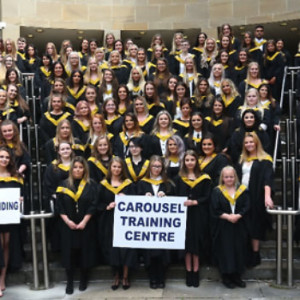The intention of monitoring and analysis is to establish if there are different success rates between genders, different ethnic backgrounds or faiths, people who are transgender, those who are care experienced, people of different sexual orientation and people with disabilities.
If there are differences in success rates it will enable action to be taken to ensure that no group is treated unfairly. In the event of you being made successful as a Modern Apprentice this information will form part of your learner record and will continue to be used for monitoring purposes throughout the period of your Modern Apprenticeship.
Your answers will be treated confidentially and will be stored electronically and manually in our Quality Assurance department in accordance with the Data Protection Act 2018 and the EU GDPR 2016/679.
The Form will not be passed on to those making a selection decision. If you have any queries regarding this form, please contact Sharon Nel on 0141 332 0030.



